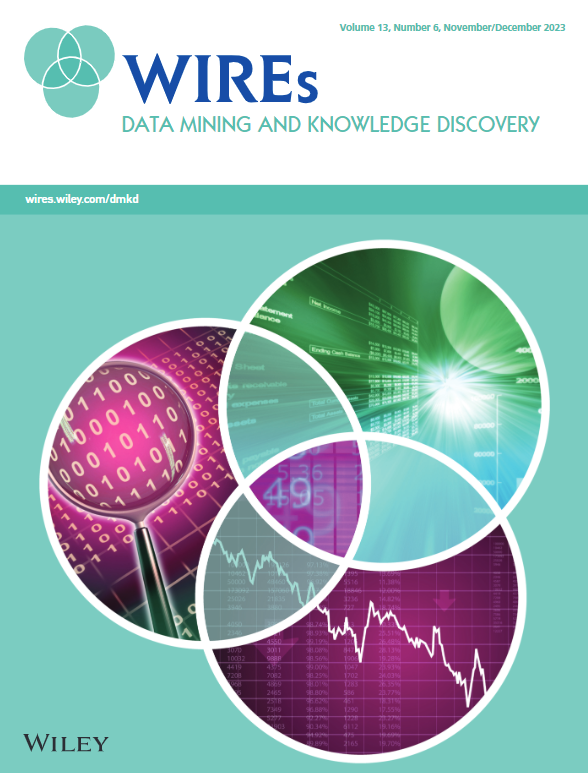The benefits and dangers of using machine learning to support making legal predictions
IF 11.7
2区 计算机科学
Q1 COMPUTER SCIENCE, ARTIFICIAL INTELLIGENCE
Wiley Interdisciplinary Reviews-Data Mining and Knowledge Discovery
Pub Date : 2023-05-11
DOI:10.1002/widm.1505
引用次数: 0
Abstract
Rule‐based systems have been used in the legal domain since the 1970s. Save for rare exceptions, machine learning has only recently been used. But why this delay? We investigate the appropriate use of machine learning to support and make legal predictions. To do so, we need to examine the appropriate use of data in global legal domains—including in common law, civil law, and hybrid jurisdictions. The use of various forms of Artificial Intelligence, including rule‐based reasoning, case‐based reasoning and machine learning in law requires an understanding of jurisprudential theories. We will see that the use of machine learning is particularly appropriate for non‐professionals: in particular self‐represented litigants or those relying upon legal aid services. The primary use of machine learning to support decision‐making in legal domains has been in criminal detection, financial domains, and sentencing. The use in these areas has led to concerns that the inappropriate use of Artificial Intelligence leads to biased decision making. This requires us to examine concerns about governance and ethics. Ethical concerns can be minimized by providing enhanced explanation, choosing appropriate data to be used, appropriately cleaning that data, and having human reviews of any decisions.

使用机器学习来支持法律预测的好处和危险
自20世纪70年代以来,基于规则的系统一直用于法律领域。除了极少数例外,机器学习直到最近才被使用。但为什么会延迟呢?我们研究了机器学习的适当使用,以支持和做出法律预测。为此,我们需要检查全球法律领域(包括普通法、民法和混合司法管辖区)对数据的适当使用。在法律中使用各种形式的人工智能,包括基于规则的推理、基于案例的推理和机器学习,需要理解法理学理论。我们将看到,机器学习的使用特别适合非专业人士:特别是那些自我代表的诉讼当事人或依赖法律援助服务的人。机器学习在法律领域支持决策的主要用途是刑事侦查、金融领域和量刑。这些领域的使用引发了人们的担忧,即人工智能的不当使用会导致有偏见的决策。这就要求我们审视对治理和道德的关注。伦理问题可以通过提供增强的解释、选择要使用的适当数据、适当地清理数据以及对任何决定进行人工审查来最小化。
本文章由计算机程序翻译,如有差异,请以英文原文为准。
求助全文
约1分钟内获得全文
求助全文
来源期刊

Wiley Interdisciplinary Reviews-Data Mining and Knowledge Discovery
COMPUTER SCIENCE, ARTIFICIAL INTELLIGENCE-COMPUTER SCIENCE, THEORY & METHODS
CiteScore
22.70
自引率
2.60%
发文量
39
审稿时长
>12 weeks
期刊介绍:
The goals of Wiley Interdisciplinary Reviews-Data Mining and Knowledge Discovery (WIREs DMKD) are multifaceted. Firstly, the journal aims to provide a comprehensive overview of the current state of data mining and knowledge discovery by featuring ongoing reviews authored by leading researchers. Secondly, it seeks to highlight the interdisciplinary nature of the field by presenting articles from diverse perspectives, covering various application areas such as technology, business, healthcare, education, government, society, and culture. Thirdly, WIREs DMKD endeavors to keep pace with the rapid advancements in data mining and knowledge discovery through regular content updates. Lastly, the journal strives to promote active engagement in the field by presenting its accomplishments and challenges in an accessible manner to a broad audience. The content of WIREs DMKD is intended to benefit upper-level undergraduate and postgraduate students, teaching and research professors in academic programs, as well as scientists and research managers in industry.
 求助内容:
求助内容: 应助结果提醒方式:
应助结果提醒方式:


